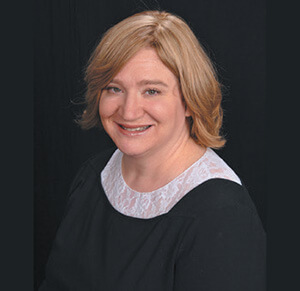
Books, and especially printed books—with pages and typesetting, soft or hard cardboard covers, illustrations sometimes, new-book-smell or even musty-library-book smell—are getting short shrift this decade. That’s one of the many reasons we love our thrice-yearly Literary Link; because, as newspaper men and women, it’s an extra opportunity to celebrate the printed word on actual pages, and to impart to our readers the great value of owning, reading and enjoying books while celebrating our community members’ physical, corporeal contributions to works of great scholarship.
But also, we want to promote reading books, generally. I read somewhere that sitting down with a child and a book doesn’t just impart a love of books to the child; it also imparts the love of the child from the person reading to him or her. It says, “I care enough about you to sit with you and share this with you.” It becomes not just a transfer of knowledge but a shared, therapeutic, bonding experience.
If this is true, and I believe it is, then sitting down to read a book alone must be an act of self-care, an act of mindfulness than says something like, “I care about my brain enough to stop whatever else I am doing to focus on this book, which has something to teach me.” It is an act of humility and an acknowledgement that maybe, just maybe, we don’t already know everything. That there is, in fact, a capacity for wonder at any age.
A Freakonomics podcast I recently heard (I have an Audible subscription too—don’t get me wrong; I love my digital things as well as books with pages!) noted that as people age, our ability to change ours minds about a given topic diminishes significantly. This is correlated to aging and the ability of the brain to take in and process new information in new ways, with neurons creating new pathways. However, I imagine those who are constantly learning, or constantly reading, must be more flexible and open in their thinking.
A genre that I have always loved reading for pleasure is novels. From a very young age, I remember getting lost on Prince Edward Island with Anne Shirley, and her adventures at Green Gables, and laughing together with the All-of-a-Kind family, Ella, Henny, Sarah, Charlotte and Baby Gertie on Manhattan’s Lower East Side. I felt my brain expand each time I discovered a new world inside books with these characters, and they remain cherished in my heart to this day. Best of all, maybe, was sitting on the barn floor on an overturned milk crate with Fern Arable, listening to the animals in Wilbur’s barnyard come alive. Charlotte’s Web is a true classic that stands the test of time for all ages. As I grew up, there were books that seemed ready to be read just by me, from The Chosen and The Promise by Chaim Potok, to Jane Austen’s six classic novels and to Marjorie Morningstar by Herman Wouk. All favorites that have their amazing stories etched as neuron paths on my imagination.
It has been a true joy to begin reading my childhood favorites to my children. Reading them Charlotte’s Web and Little House on the Prairie introduced them to worlds they have never seen. They now know, as they didn’t before, that the vast American prairie that once was in Laura Ingalls’ eyes, is only visible now in our mind’s eyes, through our reading of her account of it. We could drive for days across Kansas, Missouri and the Dakotas and never see the land as unspoiled as Ingalls described it 150 years ago. They also know that somewhere in their imagination there is a helpful sort of girl called Ramona Quimby, who felt nervous and scared on her first day of school and had all sorts of new feelings and ideas to work through, just like they did.
As I have aged, my taste in book genres has expanded from fiction to biography, and to some extent, autobiography. A recent favorite of mine was Out of the Depths, Rabbi Yisrael Meir Lau’s sincere, haunting and epically important autobiography about his experience as a child of Buchenwald growing up to be chief rabbi of Israel. I am picky though; I don’t read everything, nor do I have time to read all I want to, but I try to set aside a few times each week for reading for my own enjoyment, outside work and outside Torah learning. And I don’t count as reading but also love books on tape to “read” in the car on Audible (complex, whodunit mysteries are best for when I’m in the car by myself, I find).
Videos are wonderful things; and my children certainly enjoy more than their share of screen time. But with video, in many cases, there is so much less left for the imagination to do. If a child can use his or her imagination to instigate a visit to a place in the mind, they seem to forge a pathway to which they can always return. At least I can.
And if a house is filled with books, as mine is, then I think children get a message that these paper things are important too. To visit a new place, revisit one they’ve enjoyed, or learn something new, all they have to do is open a book. And the same for the rest of us.
By Elizabeth Kratz













